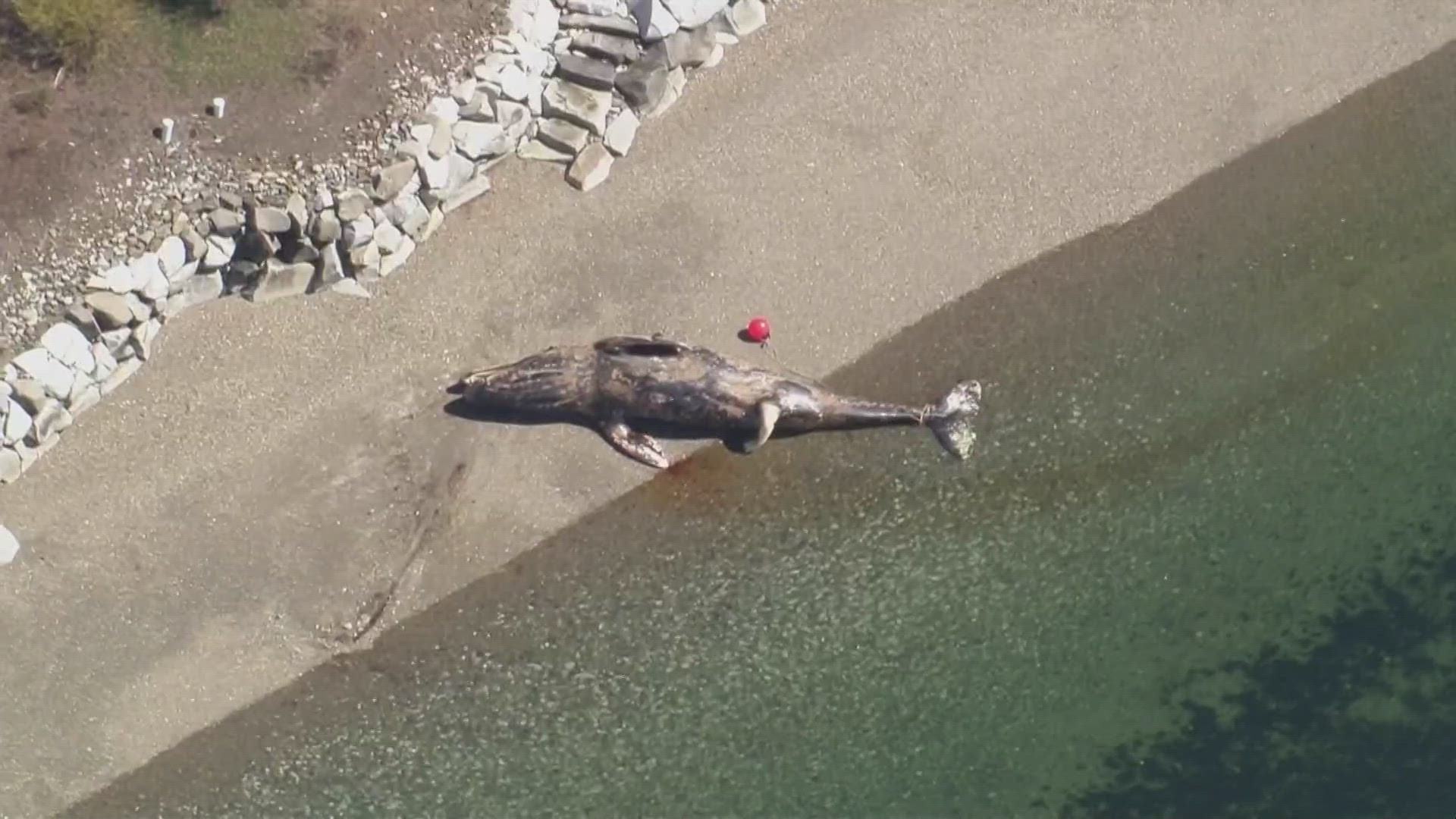FOX ISLAND, Wash. — A gray whale washed up dead on a Fox Island beach this weekend, according to the National Oceanic and Atmospheric Administration (NOAA).
Researchers are now trying to figure out how the whale died.
The whale is more than 40 feet long.
NOAA said that particular whale was confirmed to be alive last Monday, though it looked "emaciated." Researchers said the whale had been weak because of a lack of food.
Cascadia Research has done an external exam on the whale and plans to look further into the whale's death later this week.
NOAA released a report in October noting that gray whale populations along the West Coast are in a continued decline, and have been so for the past two years.
The population produced the fewest calves in 2022 that researchers have seen in nearly two decades. There has been a 37% population decline since 2016.
Gray whales are the most common species of whale that become stranded on the West Coast. Five whales, including four gray whales and one sperm whale, were stranded on the coasts of Oregon and Washington within a two-week period in late January.
Researchers believed that storms were washing up the carcases of dead whales that would have otherwise stayed in the ocean. However, gray whales have also been experiencing an "unusual mortality event" with increased strandings in recent years that also likely contributed.
Since Jan. 1, 2019, elevated gray whale strandings have occurred along the West Coast of North America from Mexico to Alaska, according to NOAA. There were 122 strandings in 2019, 79 in 2020, 55 in 2021, 47 in 2022 and four strandings so far in 2023 along the West Coast of the United States alone.

